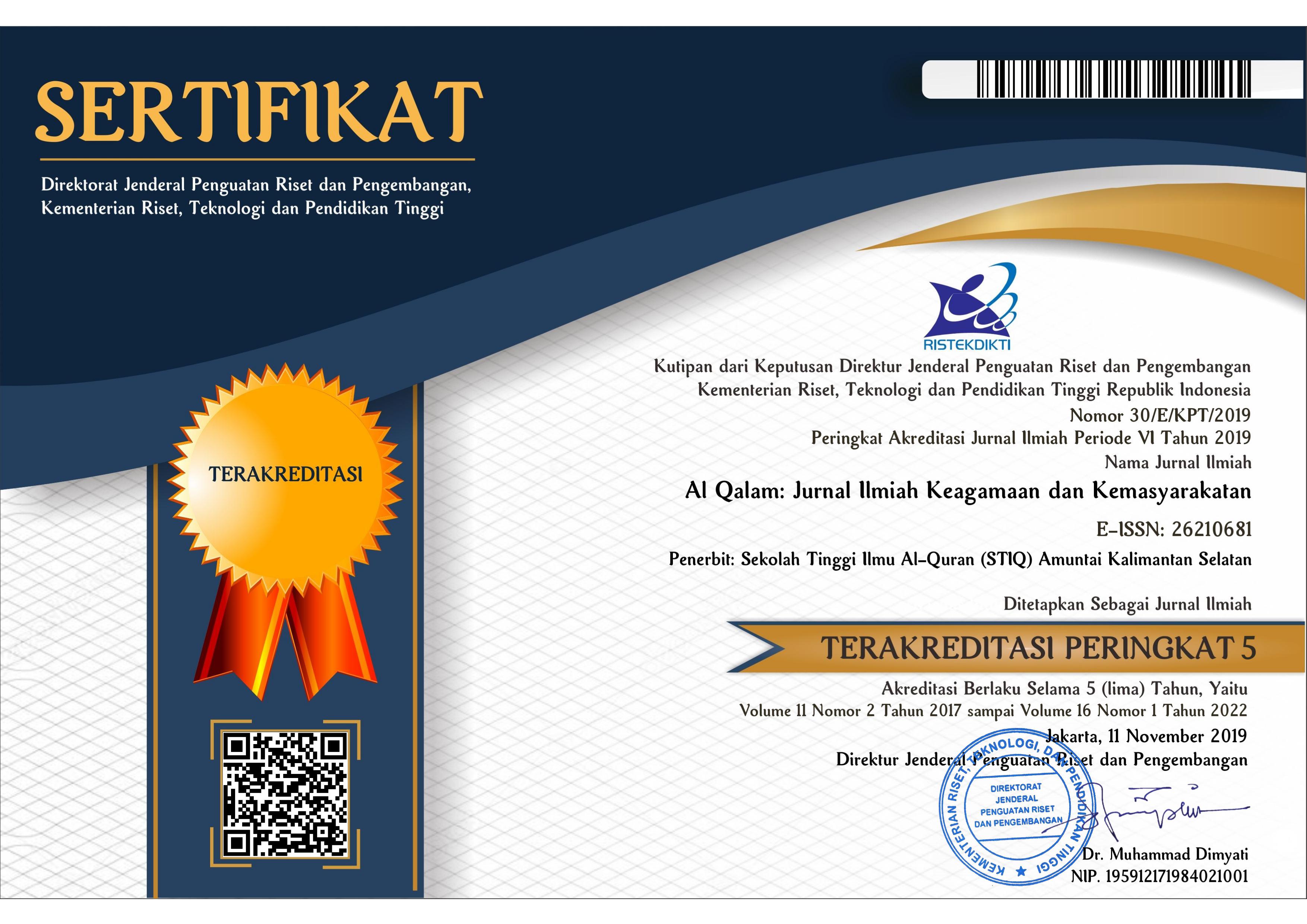A Review Article of the Pragmatics Competence in EFL Learning Context
Abstract
Cross-cultural communication requires pragmatics. Pragmatics is "the ability to use language appropriately in social settings." Pragmatic competence in another language involves understanding and carrying out communicative activities or speaking and using the language effectively in varied situations. Several relevant literature and library sources were used for this research. According to Kasper et al. "Library research, like its twin, the academic experiment, involves a kind of organized investigation with prescribed instruments, rules, and tactics." Three core library research systems are examined: checking reference sources and databases, finding and utilizing information sources, and assessing information sources according to research objectives. This article analyzes data on pragmatic competence in students of Indonesian and other foreign languages. The author used a public digital search engine to examine scientific literature on pragmatic competency studies in Indonesia to correlate disparate data and find appropriate results. Qualitative research may be more comprehensive. This study found that most studies used a descriptive qualitative approach. The exam is detailed. Most studies used a qualitative approach to characterize L2 practical skills by level and test, while one study assessed learners' cross-cultural awareness during encounters. Most studies on educational participation and the impact of cross-cultural awareness on pragmatic knowledge in EFL learning use qualitative methods, although there are three studies that use quantitative methods. Reviews and debates provide suggestions. Recent research on pragmatic competence in EFL learning settings features a descriptive qualitative approach complemented by Creswell's qualitative approach that provides greater detail about the phenomenon, and all three studies use quantitative methodology. Pragmatic competence improves EFL students' social skills. Al Khadhmi found that the pragmatic meaning of situational utterances was more difficult to interpret compared to lexical stimuli. Therefore, it is better to continuously improve certain areas, such as training EFL students' awareness before they understand a foreign language and activating pragmatic competence and pragmatic components in them, as this affects their communication inside and outside the classroom
Keywords
Full Text:
PDFReferences
Abusch, Dorit. “Lexical Alternatives as a Source of Pragmatic Presuppositions,” 2002.
Allami, Hamid, and Amin Naeimi. “A Cross-Linguistic Study of Refusals: An Analysis of Pragmatic Competence Development in Iranian EFL Learners.” Journal of Pragmatics 43 (January 1, 2011).
Bialystok, E. Bilingualism in Development: Language, Literacy, and Cognition. UK: Cambridge University Press, 2001.
Boxer, D., and L. Pickering. Problems in the Presentation of Speech Acts in ELT 17 Materials: The Case of Complaints, 1995.
Brock, Mark N., and Yoshie Nagasaka. “Teaching Pragmatics in the EFL Classroom? SURE You Can!” TESL Reporter, April 1, 2005. https://www.semanticscholar.org/paper/Teaching-Pragmatics-in-the-EFL-Classroom-SURE-You-Brock-Nagasaka/feda22e199daf6bc9c788541bb5eafef2d2ea39d.
Brown, G., and G. Yule. Discourse Analysis. Cambridge: CUP, 1983.
Chen, Jialiang. “A Review of Pragmatic Competence in BELF Interactions.” International Journal of English Linguistics 11, no. 6 (October 26, 2021). https://doi.org/10.5539/ijel.v11n6p98.
Creswell, J. W. Research Design: Qualitative, Quantitative, and Mixed Methods Approached. Thousand Oaks: SAGE Publications, 2014.
Eslami-Rasekh, Zohreh. “Raising the Pragmatic Awareness of Language Learners.” ELT Journal 59, no. 3 (July 2005).
Farahian, Majid, Mehrdad Rezaee, and Afshin Gholami. “Does Direct Instruction Develop Pragmatic Competence? Teaching Refusals to EFL Learners of English.” Journal of Language Teaching and Research 3, no. 4 (July 1, 2012). https://doi.org/10.4304/jltr.3.4.814-821.
Fernández Amaya, Lucía. “Teaching Culture: Is It Possible to Avoid Pragmatic Failure?,” November 2008. https://doi.org/10.14198/raei.2008.21.02.
Fraser, Bruce. Pragmatic Competence: The Case of Hedging. Emerald Group Publishing Limited, 2010.
George, M. W. The Elements of Library Research: What Every Student Needs to Know. Princeton: Princeton University Press, 2008.
Grossi, Vittoria. “Teaching Pragmatic Competence: Compliments and Compliment Responses in the ESL Classroom.” Prospect 24, no. 2 (2009).
Huang, Y. Pragmatics. Oxford: Oxford University Press, 2007.
Ishihara, Noriko. “Co-Constructing Pragmatic Awareness: Instructional Pragmatics in EFL Teacher Development in Japan.” The Electronic Journal for English as a Second Language 15, no. 2 (2011).
K. Bardovi-Harling et al. Developing Pragmatic Awareness: Closing the Conversation, 1991.
Kasper, G., and C. Roever. Pragmatics in Second Language Learning. In Eli Hinkel (Ed.). Handbook of Research in Second Language Teaching and Learning. Mahwah: Lawrence Erlbaum Associations, 2005.
Keenan, Elinor Ochs. “The Universality of Conversational Postulates.” Language in Society 5, no. 1 (April 1976). https://doi.org/10.1017/S0047404500006850.
Kramsch, C. J. The Applied Linguistic and the Foreign Language Teacher: Can They Talk to Each Other? ING. Book & B. Seidlhofer (Eds.), Principles and Practice in Applied Linguistics. Oxford: Oxford university press, 1996.
Kulka, B. Shoshana. Cross-Cultural Pragmatics: Request and Apologies. USA: Abica Publishing Corporation, 1989.
Levinson, S. Pragmatics. Cambridge: Cambridge University Press, 1983.
Lin, Grace Hui Chin. “The Significance of Pragmatics.” Online Submission. Vol. 3, 2007. https://eric.ed.gov/?id=ED503682.
LoCastro, V. Pragmatics for Language Educators: A Sociolinguistic Perspective. New York: Routledge, 2012.
Mahmoud, Montasser. “Culture and English Language Teaching in the Arab World.” Adult Learning 26 (March 17, 2015). https://doi.org/10.1177/1045159515573020.
Ming, Yan Li, and Yan Zhuang. “Reflections on the Nature of Pragmatic Failure.” In US-China Foreign Language, Vol. 8, 2010. https://www.semanticscholar.org/paper/Reflections-on-the-nature-of-pragmatic-failure-Yan-Li-ming/3065ee0d36527c29c4d5937d7e52cc636d966c35.
Parker, Frank. Linguistics for Non Linguist. London: Taylor and Francis, 1986.
Retnowaty, Retnowaty. “Pragmatic Competence of Indonesian EFL Learners.” JELE (Journal of English Language and Education) 3, no. 2 (December 19, 2017). https://doi.org/10.26486/jele.v3i2.260.
Shi, Xuedong. “On Cross-Cultural Pragmatic Failures in C/E Interpretation.” Theory and Practice in Language Studies 4, no. 5 (May 1, 2014). https://doi.org/10.4304/tpls.4.5.1033-1037.
Siegel, Aki. “What Should We Talk about? The Authenticity of Textbook Topics.” ELT Journal 68, no. 4 (October 1, 2014). https://doi.org/10.1093/elt/ccu012.
Snodin, N. S. “Rethinking Culture Teaching in English Language Programmes in Thailand.” RELC Journal, 2016. https://doi.org/10.1177/0033688215609231.
Soler, E. Alcon, and A. Martinez Flor. Investigating Pragmatics in Foreign Language Learning, Teaching and Testing. Great Britain: Cromwell Press Ltd, 2008.
Taguchi, N. Pragmatic Competence in Japanese as a Second Language: An Introduction. In N. Taguchi (Ed.), Pragmatic Competence. Berlin: Mouton de Gruyter, 2009.
Taha, Ayman Riheel Alnaas, Sajjad Hussain, Muhammad Sajid Aziz, and Hafiz Ali Raza. “The EFL Students’ Pragmatic Competence Level in Pakistan.” International Journal of Social Science, Education, Communication and Economics (SINOMICS JOURNAL) 1, no. 2 (May 29, 2022). https://doi.org/10.54443/sj.v1i2.14.
Thomas, J. “Cross-Cultural Pragmatic Failure.” Applied Linguistics 4, no. 2 (1983).
Tin, Tan Bee. “A Look into the Local Pedagogy of an English Language Classroom in Nepal.” Language Teaching Research 18, no. 3 (July 1, 2014). https://doi.org/10.1177/1362168813510387.
Watts, R. J. Politeness. Cambridge: Cambridge University Press, 2003.
Xue Fei, Wang. Pragmatics Perspective of Teaching Reading in High School. China Normal University (People’s Republic of China), Publishing, 2010.
Yang, W., and H. Li. “Changing Culture, Changing Curriculum: A Case Study of Early Childhood Curriculum Innovations in Two Chinese Kindergartens.” Curric. J. 30, no. 3 (2019).
Zughaibi, Abdullah Ahmed. “The Barefoot Shoemaker’s Son: Examining EFL Teachers’ Pragmatic Competence in a Saudi Context.” Saudi Journal of Language Studies 2, no. 2 (June 3, 2022). https://doi.org/10.1108/SJLS-02-2022-0013.
DOI: http://dx.doi.org/10.35931/aq.v18i1.3163
Refbacks
- There are currently no refbacks.
Copyright (c) 2024 Amaliah Amaliah

This work is licensed under a Creative Commons Attribution 4.0 International License.
Al Qalam: Jurnal Ilmiah Keagamaan dan Kemasyarakatan
index by:
Publish by:
Sekolah Tinggi Ilmu Al-Qur'an Amuntai
Contact us:
Address: Jl. Rakha Pakapuran, Amuntai Utara
Kabupaten : Hulu Sungai Utara
Kode Pos : 71471
Provinsi : Kalimantan Selatan
Telephone : 085251613000
Email: hafizhihusinsungkar@gmail.com

This work is licensed under a Creative Commons Attribution 4.0 International License


